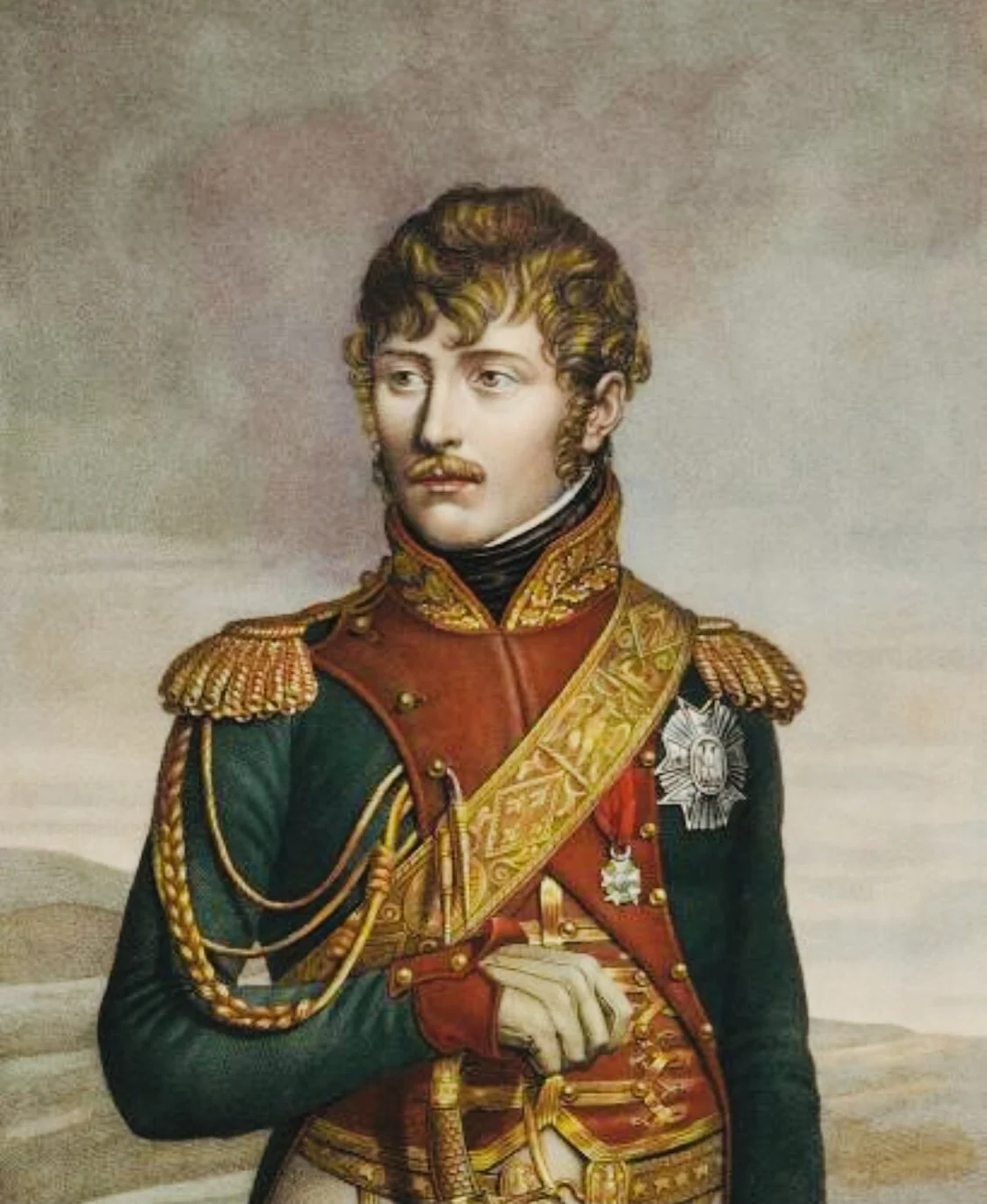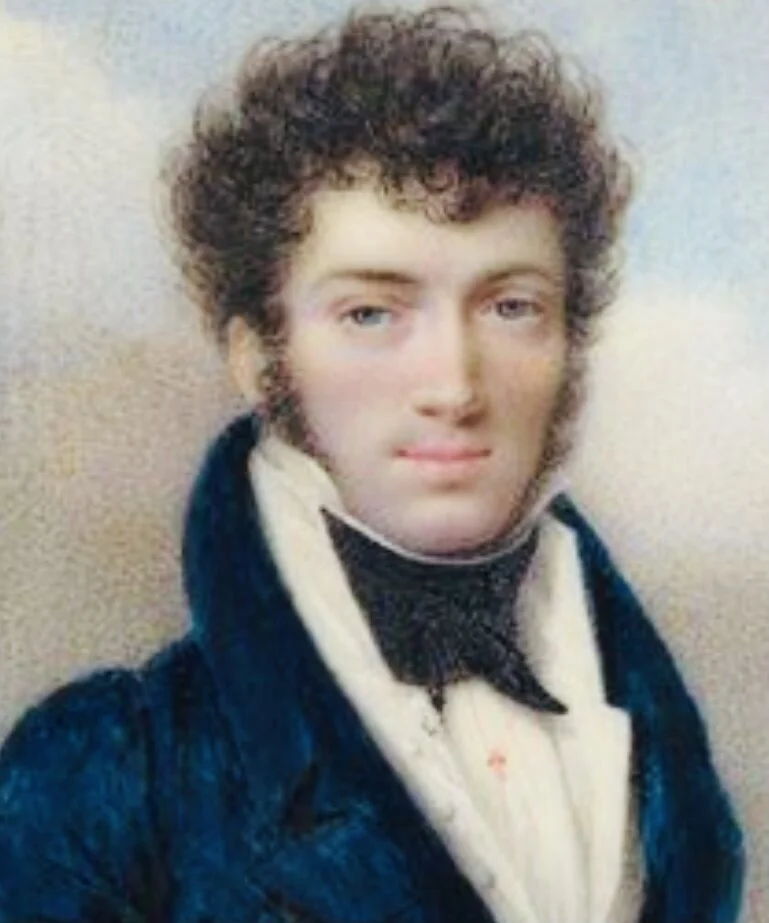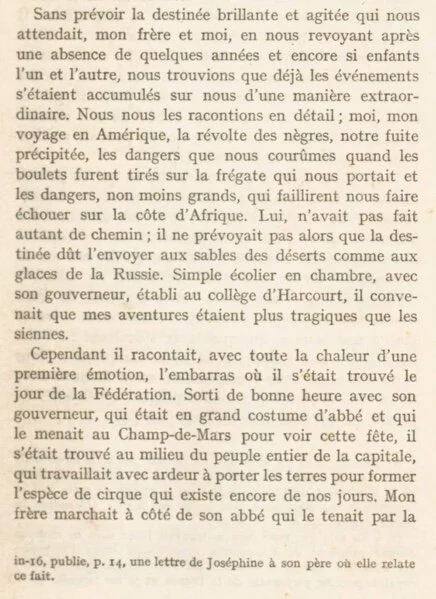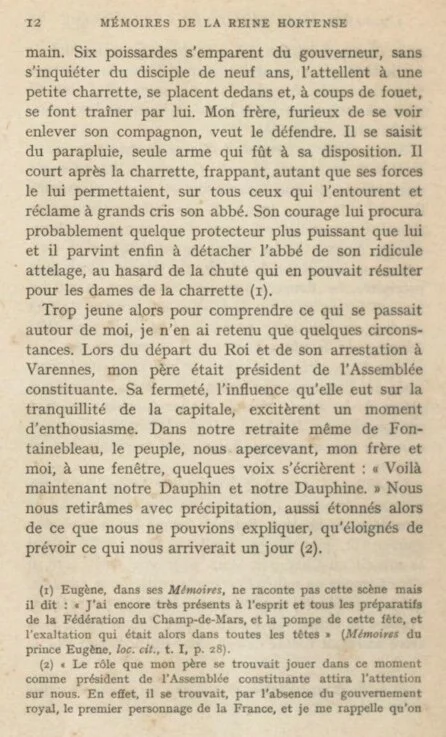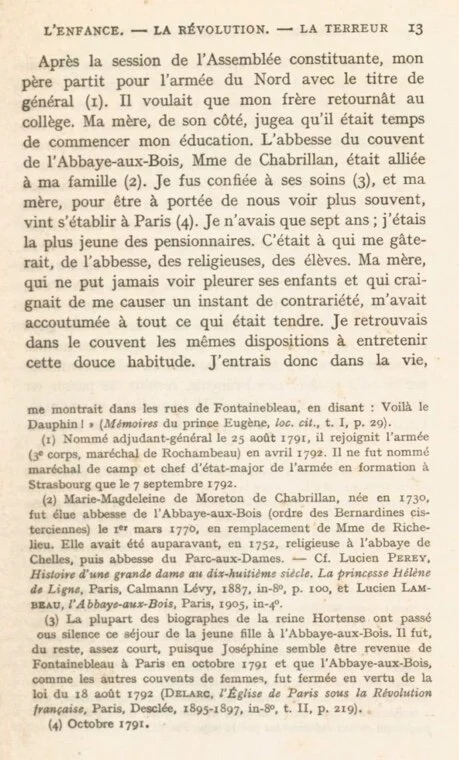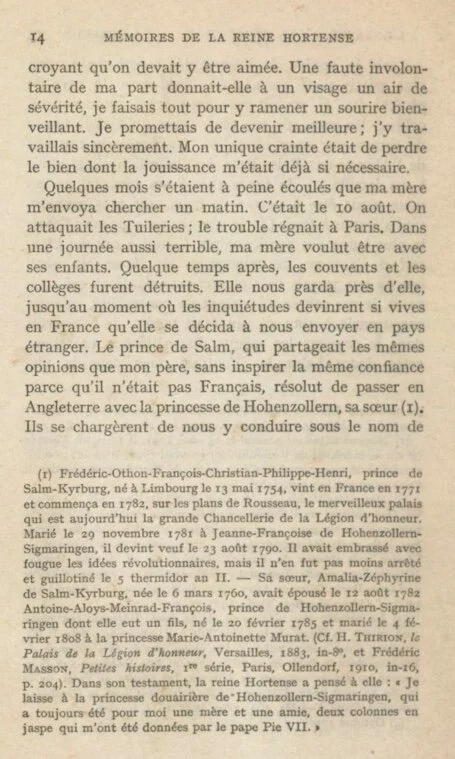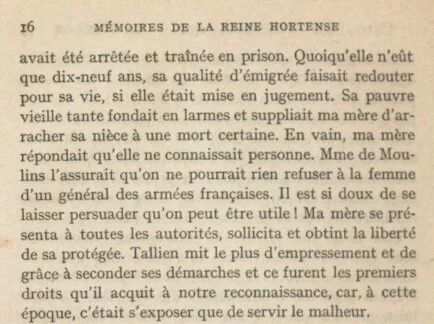A new level of organized malice came on the scene in the 1700s. Regular people then, as now, had difficulty comprehending the depths of what they were up against.
It was by his underestimation the boundless depravity of his enemies that the downfall of Napoleon was accomplished. It sounds terrible to say that it’s even possible for such a cabal to even exist but we have been showing for years that this is the case.
Our story continues during the time of a slave rebellion that drove Josephine and Hortense from Martinique back to revolutionary Paris.
…
No premonition warned us of the brilliant but checkered fate that lay before us. Indeed, my brother and I felt that considering our extreme youth we had already had more than our share of adventures.
Eugène
We discussed at length the experiences through which we had passed. I described my trip to America, the revolt of the negroes, our hasty departure, the danger we were in when cannon-balls fell all round our frigate and the almost equally great peril that threatened us when our ship almost sank off the African coast.
Eugene had not been so far afield. Nor did he foresee that in time Fate would lead him, now through the sands of the desert, now through the icy wastes of Russia. He was still a mere schoolboy, living with a tutor at the College d'Harcourt and he admitted that I had had more thrilling adventures than any he had known.
Yet he too had tales to tell. He described for instance, with all the vivacity that accompanies our earliest memories, what had befallen him the day of the celebration in honor of the Federation. He and his tutor, the latter wearing the full dress of an abbé, had gone out early in the morning.
They intended to visit the Champ de Mars where the festivities were to take place. On the way they found themselves surrounded by a crowd of enthusiastic working people bound for the same destination and transporting earth and other materials for the construction of the amphitheater which is still in existence.
My brother walked beside his tutor, holding the latter's hand. Suddenly six fishwives, who were dragging a little cart, laid hold of the abbé, harnessed him between the shafts, climbed into the cart themselves, and began whipping him to make him haul them along.
The aggressors paid no attention to the ecclesiastic's six year old companion. Eugene, however, furious at seeing his tutor thus assaulted, rushed to his defense. Seizing an umbrella, the only weapon within his reach, he ran after the car, belaboring with all his might those who came in his way. At the same time, he demanded loudly the release of the tutor.
His courageous attitude apparently attracted the attention of some personage possessing authority, who released the victim from his ridiculous position without regard for the tumble the sudden unhitching of their steed might cause the fishwives. Too young at the time to understand what was going on around us I can only recall a few episodes of the days of the Revolution.
At the time of the flight of the King and his arrest at Varennes my father was President of the Constituent Assembly. His firm attitude, the manner in which he maintained order in Paris aroused, for a time, great enthusiasm.
Even in our retreat at Fontainebleau whenever people caught sight of my brother and myself looking out of a window there would be cries, "There are our Dauphin and Dauphine." Whenever this occurred, we retired hastily, as incapable of understanding the cause of the demonstration as we were of surmising what the future held in store for us.
At the close of the session of the Constituent Assembly my father left Paris to take over his post with the Army of the North to which he had just been appointed with the title of general. He wished Eugene to return to school.
My mother considered the time had come when my education also should be seriously commenced. Madame de Chabrillan, abbess of the convent of the Abbaye aux Bois, was a relative of my family, and it was to her care I was confided.
In order that she might see us both more frequently my mother left Fontainebleau and settled in Paris. At the convent I happened to be the youngest of the boarders. Consequently, everyone spoiled me—the abbess, the nuns, my fellow pupils; and in my new surroundings I received the same tender, affectionate care to which my mother, who could not bear to see either of her children unhappy and who was constantly afraid of causing me the slightest sorrow, had accustomed me.
Thus, my first contact with life encouraged my belief that everything and everybody was delightful. If some involuntary fault on my part provoked a frown or a word of reproof from those about me I sought at once to adopt an attitude that would win their forgiveness.
I promised to behave better and did my best to carry out my resolutions. A few months only had elapsed after my admission to the convent when my mother sent for me. It was the tenth of August (1792). The mob was attacking the Palace of the Tuileries. Paris was in an uproar. On such a day my mother felt she should be with her children. Shortly afterwards the schools and convents were destroyed. We continued to live with my mother until conditions became so unsettled in France that she decided it was safer for us abroad.
The Prince de Salm, who held the same political views as my father, but did not inspire the same confidence because he was not French, decided to emigrate to England. His sister, the Princess de Hohenzollern, was to accompany him, and it was suggested we should be taken along as their children.
The moment my father heard we were leaving the country he dispatched a messenger to the Prince asking him to send us back to Paris. He did not wish us to leave France. The message reached us at Saint-Pol in the Province of Artois where we had stopped for a short time. Had it come two days later we should have been on shipboard.
General Alexandre de Beauharnais
The Prince and Princess brought us back to Paris themselves, and, in spite of her anxiety for our safety, our mother was delighted to see us again. She was living in retirement at the time, not at all in touch with the people in power, and it was her kind heart which caused her to emerge from her seclusion.
She did so on behalf of Madame de Moulins, an old lady of eighty years. The latter called on my mother with the news of the arrest and imprisonment of her niece, a Mademoiselle de Bethisy. The niece was only nineteen, but in spite of her youth the fact she had reentered France from abroad rendered her execution likely, if the case was ever brought to trial.
With tears in her eyes the poor old aunt besought my mother to save her niece from certain death. It was useless for my mother to reply she could do nothing, that she had no influence with, and was quite unknown in official circles. Madame de Moulins assured her that a request made by the wife of a general in one of the French armies would meet with a favorable reception.
It is always pleasant to feel we can be useful to another human being. My mother called on the various authorities, presented her petition and secured the release of her protegee.
It was Tallien who was the most active in assisting my mother. This was the first occasion on which he won our gratitude, which was all the deeper because in those days to help the unfortunate was to risk one's own safety.

